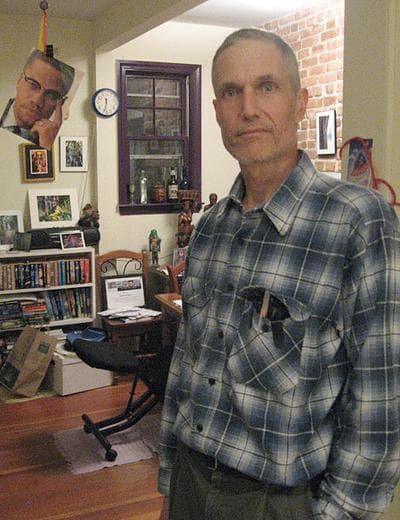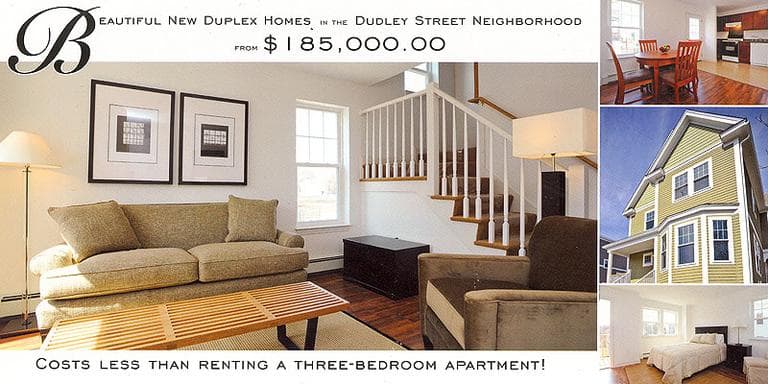Advertisement
The Depreciating American Dream, Part 4: A Third Way?
Owning a home has long played a significant role in the American story; the notion that buying a house is the stepping stone to wealth and happiness goes back a long time. But the housing bubble has burst, and many local homeowners are living in the shadow of the white picket fence. This is Part 4 of a WBUR series: The Depreciating American Dream.
To understand what we’re up against today, you have to go back 60 years.
"Ever since World War II, we have seen home ownership, as, in some sense, the ultimate goal for families in America," says Barry Bluestone, an economist at Northeastern University. He says there’s a good reason for that: The war changed the American economy. Returning GI’s weren’t going back to the farm anymore. People needed new places to live.
"If you go back to the post-war period, we were trying to figure out new options for people," Bluestone says.

Enter Fannie Mae and Freddie Mac. Enter the 30-year fixed mortgage. These made it possible for ordinary folks to put some money down, have stable long-term costs and move in with all their kids — since the Baby Boom was underway.
"People could buy into a relatively stable economy," Bluestone says. "It’s before we had great international competition. It’s before we saw the disaster of the American auto industry. And therefore home ownership made a lot of sense! Today, we’re realizing we’re living in a much more fragile economy."
Today, Bluestone says, there’s a need for housing options that take this new fragility into account — that make home ownership less risky.
The Co-Op As Third Way
Steve Meacham has a map of the Normandy Coast up on his wall in the apartment he owns in Cambridge. His father was there on D-Day, and the map features notes on the invasion.
With his flannel shirt, grey stubble and steel blue eyes, Meacham looks like a throwback to his father’s time. But he may actually be living a future home ownership model. His apartment is a co-op apartment.
"This co-op is permanently affordable," Meacham says. "Meaning that if I sell my share I can only sell it for what I purchased for, plus a fixed percentage increase per year."
Basically, Meacham can’t make a killing by selling when the market goes up. But he also can’t get killed when the market goes down. And he has seen plenty of people get killed. He works at City Life Vida Urbana, a housing non-profit in Jamaica Plain. He has seen how the "homes-as-commodity" view ended up tearing apart community.
Advertisement
"That kind of speculative mentality, that’s taken, justifiably, a pretty strong hit," he says. "And we should bury it. Your home should be a savings account, not a junk bond."

The Land Trust As Third Way
Another alternative home ownership model is a land trust. Kind of like Steve’s co-op, but bigger — a community trust owns the land and people can buy the houses on it. There’s one in Roxbury with just under 100 homes.
Jason Webb is in charge of the land trust at the Dudley Street Neighborhood Initiative. He has one house up for sale now for $180,000 — way below market. Webb says the appraisals have come back at $350,000.
Like the co-op housing, when you sell the place, you can only make a little bit of appreciation on it — 5 percent. Again, lower reward, but low risk. Webb says not one of his land trust homeowners owes more on his or her house today than it’s worth. That’s at the same time when a quarter of American homeowners are underwater.
But the problem with these limited equity models is that they’re few and far between. There’s so much demand for Webb’s houses, he has to hold a lottery to pick who gets to move in.
Bluestone says just as the model for home ownership adapted to the stable economy after World War II, today’s economy demands we innovate again.
"We’re at that wonderful point in time in a sense where we can experiment with new models of how to provide good shelter, good housing for people, but under different forms," he says.
So that people can still live securely in the housing they want, and eventually come out ahead.
Related Link:
This program aired on April 1, 2010.
